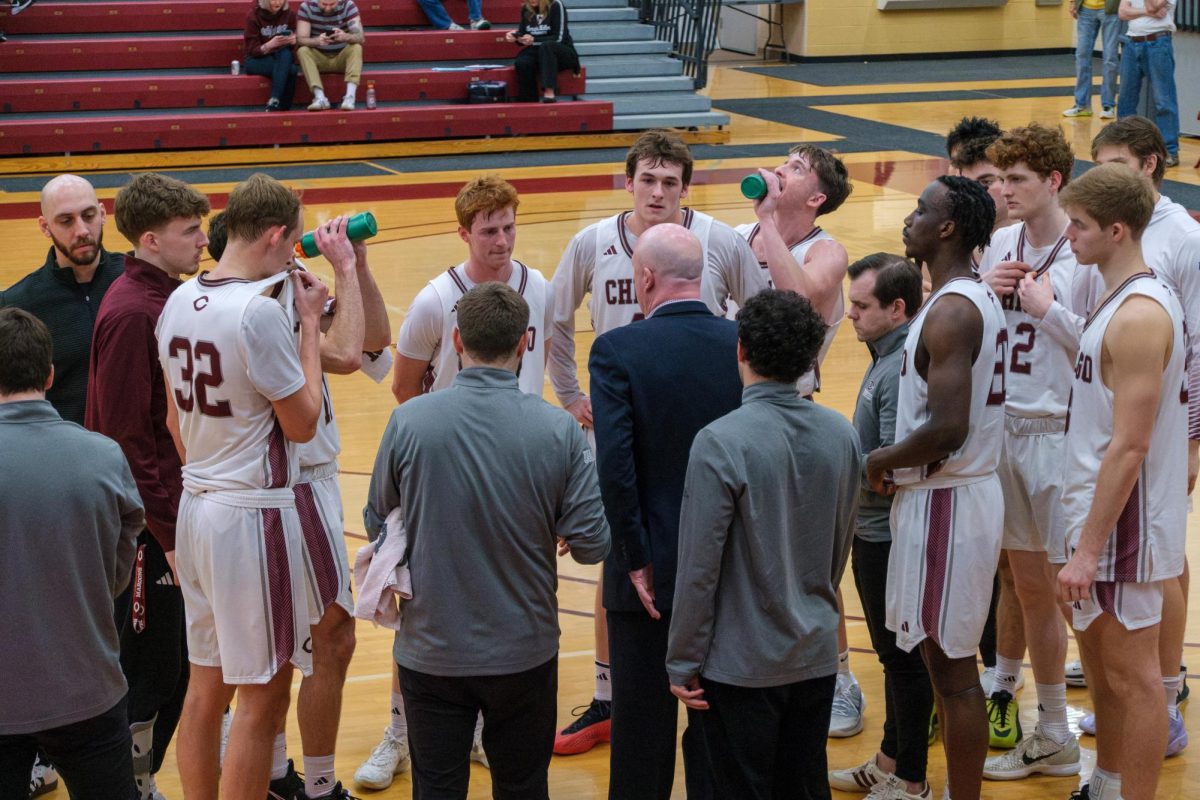When people ask what my major is, I always say, “History.”
I answer “history” because it’s a lot simpler than telling the truth. What I’ve really spent the bulk of the past three years studying at the University of Chicago is the Maroon, with a concentration in sports.
In a way, I feel a little guilty about lying, but I do it anyway because in polite chitchat it takes too long to explain the Maroon response. The few times that I’ve tried, the “uh-huh” and “Oh. That sounds interesting,” haven’t been encouraging, and the conversation usually stalls afterward.
I can understand why people are perplexed by my choice. It runs contrary to most perceptions held about the University. Chicago, isn’t that the school that left the Big Ten? Who goes to one of the nation’s premier academic institutions and studies sports?
Well, it didn’t start out that way. Like most of the students walking around the quads, I was initially drawn to the U of C for its gothic architecture, quirky faculty, and Life of the Mind slogan.
While the Reg remains one of my least favorite spots on campus and I never got into any conversations about Socrates versus Plato at Bartlett, I’ve still found ways to live up to the credo. The classroom provided one outlet, but by and large the much -hyped Life of the Mind took place in the second-floor coaches’ offices of Ratner and in the bleachers at Stagg.
In both places, there was something new to learn each time I went there, with the added bonus of not seeing That Kid from Hum. Admittedly, I had quite a bit to figure out starting out as a first-year on both the sports and journalism fronts.
A softball player who grew up in a family that primarily watched baseball, my knowledge of the nine other sports played at Chicago was limited to say the least. That started to change after watching home games, hanging around the Go Maroons audiocast announcers, and interviewing the players and coaches.
Writing articles for the paper later put all my newly acquired sports know-how to the test. It also gave me an appreciation of the fact that more often than not there’s another piece to the puzzle. Stat sheets and press releases give me an idea of what happened in a game, but rarely have I walked away from an interview without finding out something unexpected.
Now that I’m stepping down as sports editor, I can say that at least the basic Xs and Os of all the Chicago sports are no longer a mystery. It’s only passing knowledge, though, because there’s always something more to learn. Teams get new players, the style of play changes, and each day different game situations reveal something about the game itself.
That kind of ongoing sports education has fed the Life of the Mind more than debates at Bartlett or sleepless nights at the Reg. And while history classes to fulfill my official major have certainly sharpened my critical thinking skills, they don’t offer that same feeling of getting fresh information each day.
Even though going into next year I’ll switch over from focusing on sports and the newspaper to completing a B.A., I’ll still secretly mean the Maroon when I answer questions about my studies at Chicago.
After all, as one of my Sosc professors said in class, there’s a strong connection between historians and sportswriters. Neither can predict the outcome, but both can explain how it happened.







